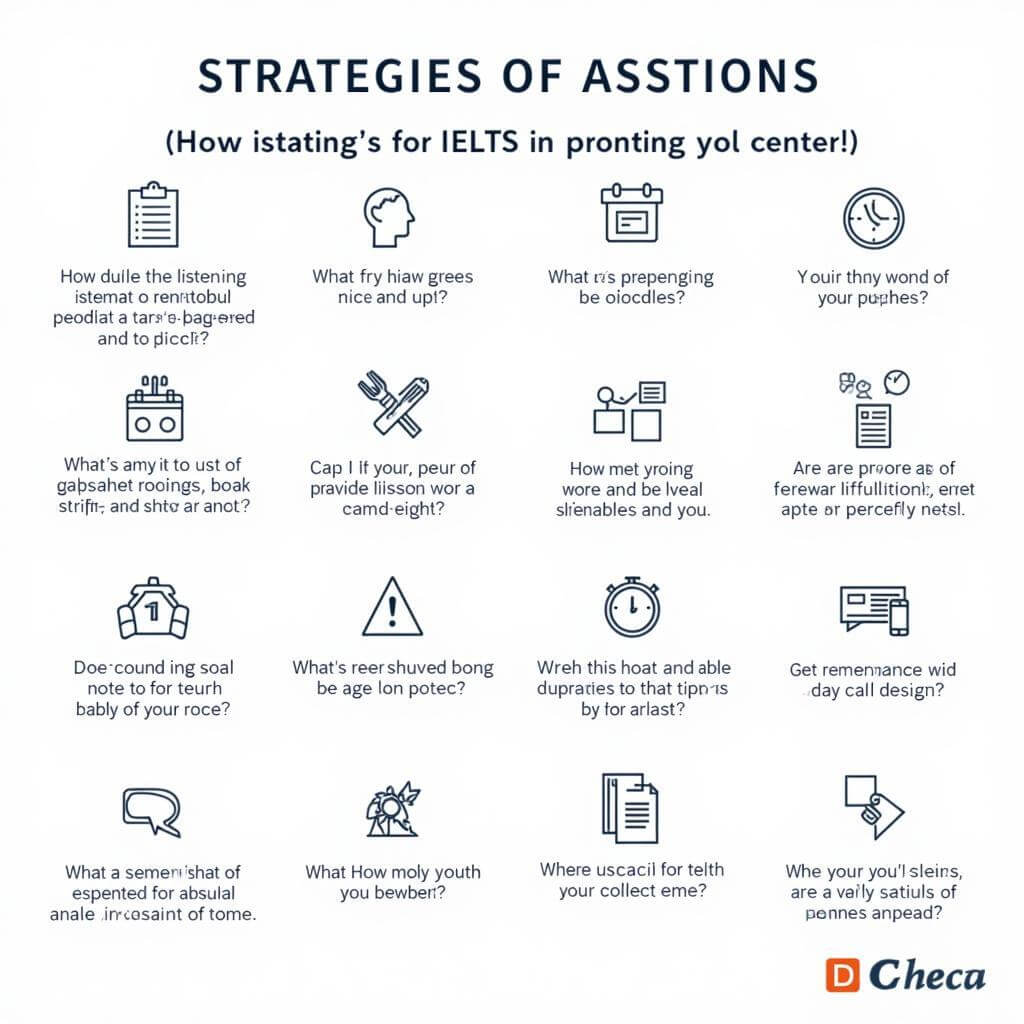Mastering the art of answering detailed questions in IELTS Listening is crucial for achieving a high score. This skill requires precision, focus, and a deep understanding of the exam format. As an experienced IELTS instructor, I’ll guide you through effective strategies to excel in this challenging aspect of the test.
Understanding Detailed Questions in IELTS Listening
Detailed questions in IELTS Listening typically require specific information from the audio. These questions test your ability to identify and extract precise details, often including names, numbers, dates, or specific facts. Focusing on detailed listening sections is essential for success in this part of the exam.
Types of Detailed Questions
- Fill-in-the-blank questions
- Multiple choice questions
- Short answer questions
- Matching information
- Labeling diagrams or maps
Key Strategies for Answering Detailed Questions
1. Predict and Prepare
Before the audio begins, carefully read the questions and try to predict the type of information you’ll need to listen for. This mental preparation can significantly improve your focus during the listening task.
2. Focus on Key Words
Identify key words in the questions that will help you locate the relevant information in the audio. These might include specific nouns, numbers, or descriptive adjectives.
3. Listen for Synonyms and Paraphrasing
Remember that the audio may not use the exact words from the questions. Focusing on main speaker ideas will help you understand the context and recognize paraphrased information.
4. Pay Attention to Numbers and Dates
Detailed questions often involve numerical information. Be prepared to quickly note down numbers, dates, times, and measurements as you hear them.
5. Use the Given Time Wisely
Take advantage of the time given before each section to read the questions thoroughly. This will help you anticipate the information you need to listen for.

Common Pitfalls and How to Avoid Them
1. Overcomplicating Answers
One of the most common mistakes is providing unnecessary details in your answers. How to avoid unnecessary details in IELTS listening answers is crucial for scoring well. Stick to the specific information requested and avoid adding extra words.
2. Misinterpreting Instructions
Carefully read the instructions for each question type. Dealing with tricky instructions can be challenging, but it’s essential for accurate responses. Pay attention to word limits and specific answer formats.
3. Getting Distracted by Irrelevant Information
The audio may contain information that sounds relevant but isn’t the correct answer. Stay focused on the specific details required by the question.
4. Spelling Mistakes
In IELTS Listening, correct spelling is crucial. Practice spelling commonly misspelled words, especially those related to numbers, dates, and proper nouns.
5. Missing Key Information Due to Note-taking
While note-taking is important, don’t let it distract you from listening actively. Develop a quick and efficient note-taking system that works for you.
Effective Practice Techniques
1. Regular Listening Practice
Engage in daily listening exercises using a variety of English accents and topics. This will improve your overall listening comprehension and ability to catch details quickly.
2. Timed Practice Tests
Regularly take timed practice tests to simulate exam conditions. This will help you manage your time effectively during the actual test.
3. Transcription Exercises
Practice transcribing short audio clips word-for-word. This sharpens your ability to catch specific details and improves your spelling.
4. Focus on Academic Lectures
How to practice IELTS listening with academic lectures is particularly beneficial for detailed questions, as these often appear in the later, more challenging sections of the test.
5. Analyze Your Mistakes
After each practice session, carefully review your answers. Understand why you made certain mistakes and develop strategies to avoid them in the future.
Applying Your Skills in the IELTS Exam
On test day, remember to:
- Stay calm and focused
- Read instructions carefully
- Manage your time effectively
- Double-check your answers if time allows
- Transfer your answers accurately to the answer sheet
By consistently applying these strategies and practicing regularly, you’ll significantly improve your ability to answer detailed questions in the IELTS Listening test. Remember, success in IELTS is not just about English proficiency, but also about mastering the specific skills required for each section of the exam.
Developing your detailed listening skills will not only benefit you in the IELTS test but will also enhance your overall English language proficiency, particularly in academic and professional contexts where attention to detail is crucial. Keep practicing, stay confident, and approach each question with a strategic mindset. With dedication and the right techniques, you’ll be well-prepared to tackle even the most challenging detailed questions in your IELTS Listening test.